Chief Executive Officer Dimitra Rizzi met up with Amanda Venezia of Nation’s Restaurant News, to discuss sustainability and the perfect storm of helping people, benefiting the planet, and getting more people in the door. Here are a few highlights from their conversation. (Lightly edited for clarity and brevity.)
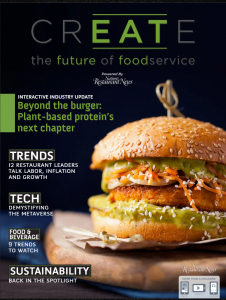
Amanda: Tell me a little bit about your company.
Dimitra: Elohi Strategic Advisors is all about helping people in the alternative protein world get into market, and specifically foodservice. We do everything from help them in writing their strategy to working on a supply chain, helping them with their products, and in the end, also helping them by being their salespeople.
We’ve put a lot of brands in the market, a few of which are here at the National Restaurant Association Convention today – TiNDLE, Finless, New Wave. Today, we’re also working with Veggies Made Great, which is in retail, but now they’re making their foray into foodservice. So we’ve helped them as well.
Amanda: That’s absolutely incredible. In that huge trend here that we’re talking about, sustainability: tell me what does sustainability mean and why should it be important to people?
Dimitra: I’ve been an operator my entire life. And when people talk about sustainability, they only think about the word, right? Or they say this product is sustainable. Sustainability is all about the people, the planet and the product. What’s really, really important is that all those three things come together to create a perfect storm, if you will, to make this place a better place to live and to leave it even better than we found it.
Sustainability is very near and dear to my heart. I love that mission.
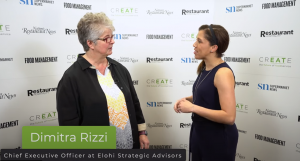
Amanda: We’ve heard from a couple of your clients about what they’re doing to improve the planet for people with their products. I know that there are a lot of myths and misconceptions surrounding sustainability. Bust some myths for us.
Dimitra: I’ll tell you what, anyone that is in operations today, whether you run a restaurant, whether you run a school cafeteria, whatever you do, you have to understand that you can make money through sustainability. And most people go “oh, but if I have a sustainable product people will pay for it?” And the brands are out there, and they are sustainable.
They’re really talking. They’re talking the emotion of the human being. That’s what grabs you, right? When you think about what earbuds you’re going to buy or you think about what kind of coffee you’re going to drink or you think about perhaps what you’re going to eat tomorrow. You get really emotionally attached. That’s why by the way, I love love love foodservice, because we’re emotionally attached, right?
Here’s what I would say to anyone listening: I’m an operator. I come from the restaurant world. And I’m gonna tell you, if you do it right, and you give the right message, you provide the right product, you provide the right atmosphere, you are going to increase your sales. You’re going to get more people coming in. And by the way, you’re doing it all for good. So that’s what I think.
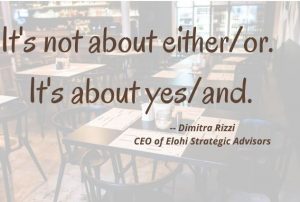
Amanda: I think that that is amazing. You were literally born for this job.
Dimitra: Well, thank you. You know, I am Greek and I am in the food business. There you go.
Amanda: Tell me about using sustainability as an answer to some of the challenges that we’re seeing in the industry today.
Dimitra: I gotta tell you one of the biggest challenges today is providing a share stealing experience.
And what do I mean by that?
Why would anyone pass other restaurants to come to my restaurant? Good question, right? Why would they do that? Well, the way that you provide a share-stealing experience today is to really talk to them about what they see as an issue out there. Climate change is an issue.
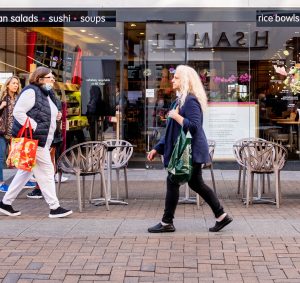
The way that we eat food today, if we keep doing what we’re doing today, we’re going to run out of that food, whether it’s seafood, whether it’s meat, whatever it is. It’s not sustainable, because it’s not sustainable. It’s not about either/or. It’s about yes/and.
My example is, everybody could eat meat and fish all day, all week. But every week, if you just one day a week said, “I’m not going to eat that. I’m going to allow the oceans to regenerate.”
That’s what we mean. We’re not saying don’t eat fish. We’re not saying don’t eat meat. What we’re saying is give the earth, just a little break, to rejuvenate. That’s a big deal.
I get really passionate about this because I’m going to tell you, if you do it right, whether you’re a restaurant operator, a college or university, a hospital, whatever it is, I guarantee you, you will create a share stealing experience.
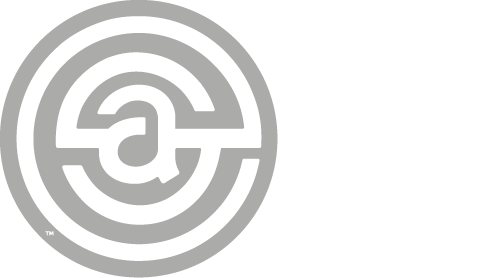
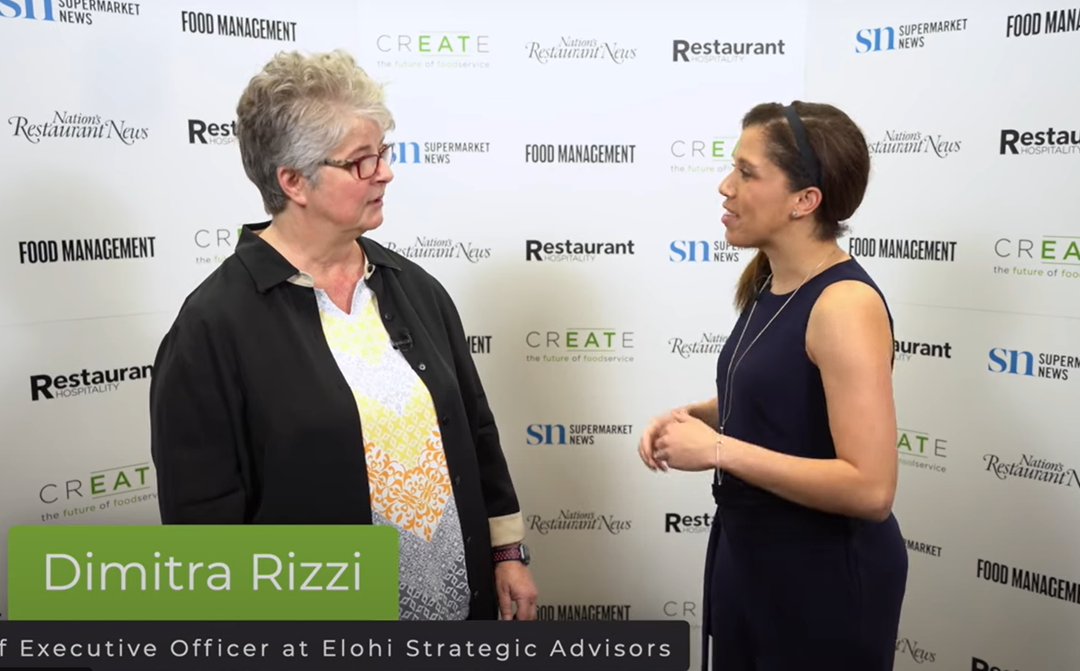
I completely agree with Dimitri that the future of foodservice will prosper with a focus on earth and species sustainability, clean green energy, and compassion for our environment and each other. I love the progressive vibe of this company!
Much Success!